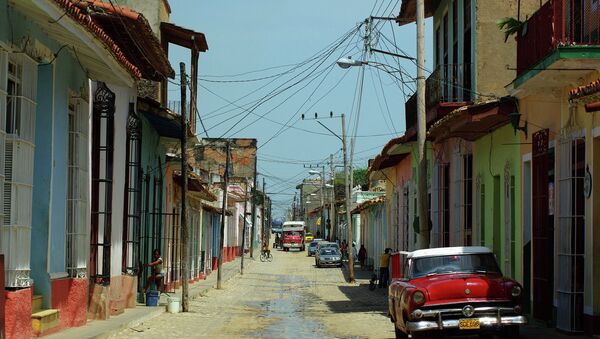The Obama administration is about to make one further step toward mending ties with Havana: next week the US President is due to visit the island nation.
Remarkably, Barack Obama will be the first US leader to visit Cuba since Washington imposed its harsh economic sanctions on the country back in 1962.
"The March 21 visit is a milestone in Havana's lengthy process of opening to the United States. But normalizing economic ties will take far more than a single state visit," Stratfor's analysts underscore.
Stratfor (Strategic Forecasting, Inc.), sometimes referred at as "the shadow CIA," points to the fact that the embargo's future will totally depend on the "political mood" in Washington.
"Both houses of the US Congress — currently controlled by the Republican opposition — would have to pass legislation undoing provisions of the previous acts to end it. This is unlikely to happen during the remainder of the Obama administration, which will not be able to find the consensus needed to pass controversial legislation during an election year," the analysis reads.
Stratfor notes that yet another stumbling block in the way of the US-Cuban rapprochement is Havana's treatment of dissidents and other human rights issues. In addition, the Cuban financial system needs reform to become more transparent and thus more attractive to American investors.
However, "until the embargo is lifted, it is likely that if the US government wants to boost trade and financial transactions between specific US business sectors and Cuba, it will have to loosen existing federal restrictions through the US Department of the Treasury," the report states.
Anyway, the task of fixing economic relations with Cuba will fall to the next US president and there's the rub. It still remains unclear whether or not Obama's successor will follow in the footsteps of the US President.
An analytical report by Elizabeth Gonzalez of David Rockefeller's Americas Society sheds some light on the possible future of the US foreign policy toward Cuba.
Hillary Clinton
Gonzalez draws attention to the fact that one of the 2016 election cycle leaders, Hillary Clinton, has recently shifted her position on the Cuban embargo and is now calling for loosening the restrictions. The analyst recalls that back in 2000 Hillary Clinton was not ready to vote to lift the embargo.
"The Cuba embargo needs to go, once and for all," Clinton claimed in July 2015 during her speech at Florida International University.
Donald Trump
"The concept — it's been out there for 50 years or whatever, and I think the concept of having there be some normalization is not a bad thing. Ultimately, it's going to be good," he remarked during "The John Fredericks Show," as quoted by The Washington Times.
Still, according to Trump, Washington "could have had a better deal," since Cuba is having a "hard time."
Ted Cruz
In contrast, Trump's GOP competitors, senators Ted Cruz of Texas and Marco Rubio of Florida, lambast the idea of renewed relations with Cuba.
Gonzalez remarks that Cruz, a Cuban American, does not support lifting the sanctions "as long as the Castros are in power."
In his turn, Rubio, who has just suspended his campaign, pledged to "roll back" all Obama's policies aimed at normalization of relations with the Caribbean island, including the removal of Cuba from the US State Department's List of State Sponsors of Terrorism.
John Kasich
"I think [the Obama Administration] made a big mistake because I think Cuba needed to do something [before diplomatic relations was restored last year]," Kasich said in an interview with CBS4's Jim DeFede.
However, that does not mean that the governor will jump at the opportunity to sever US-Cuban ties if he wins.
Bernie Sanders
And last but not the least is Vermont Senator Bernie Sanders who has always backed the idea to end Washington's Cold War-era policy on Cuba. Furthermore, Sanders visited the island back in 2014 as a member of the US congressional delegation.
"My hope is that Cuba moves toward a more democratic society while, at the same time, the United States will respect the independence of the Cuban people," Sanders noted.
So, it seems that there is a chance that the US-Cuban thaw will not turn into another "cold war" between Washington and the Caribbean nation.




